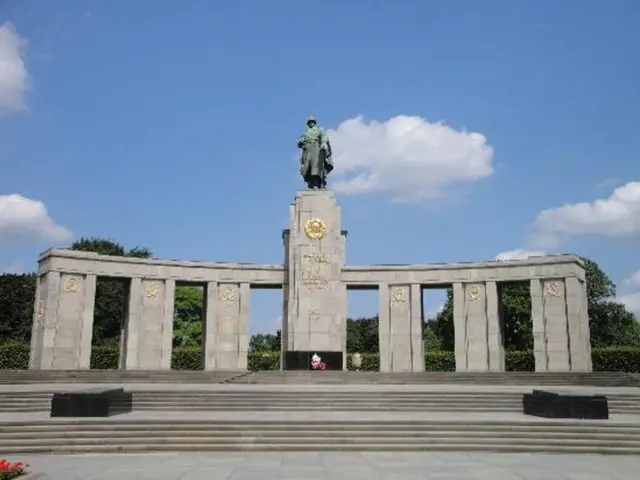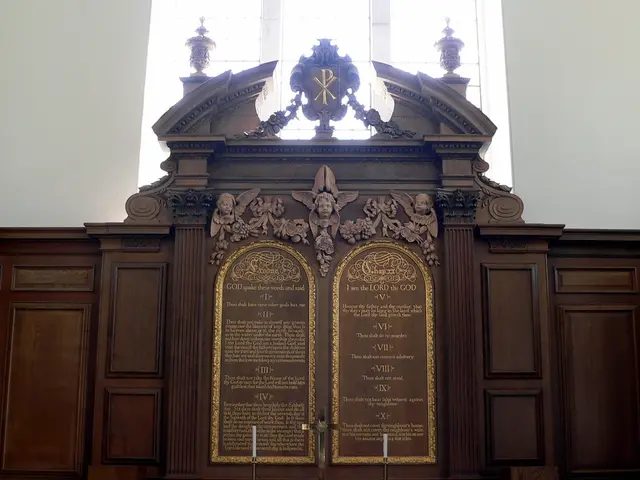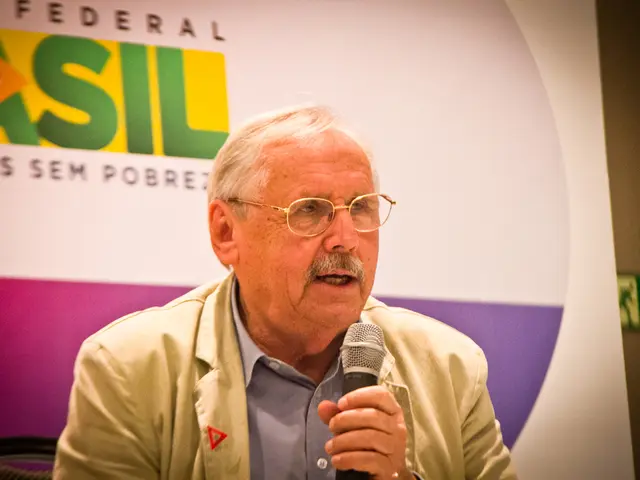Israel intends to liberate Gaza from Hamas control, wherein Netanyahu expressed this intent despite the international disapproval.
Israeli Prime Minister Benjamin Netanyahu has declared that Israel will "free Gaza from Hamas," marking a significant shift in the region's political landscape. This bold move, which involves a ground offensive to break Hamas' hold on Gaza City, has sparked widespread international concern.
The demilitarization process is expected to be complex and prolonged, with hundreds of thousands of Palestinians potentially being displaced and forced into a very limited and already overcrowded humanitarian zone within Gaza. The dense population in Gaza City raises alarm about high civilian casualties as a result of the intensified military campaign.
Moreover, there is no detailed publicly available plan about how Israel intends to govern Gaza afterwards or manage its reconstruction and civil administration once Hamas is removed. This lack of clarity adds to the international concern, as the future political and humanitarian stability of Gaza hangs in the balance.
The humanitarian toll in Gaza has reached unprecedented levels, with a Lancet-published study suggesting over 64,000 deaths in Gaza since the escalation began. Women, children, and the elderly account for a significant proportion of these casualties. Gaza is one of the most densely populated regions in the world, with much of its urban infrastructure now severely damaged.
The choice of a future governing body in Gaza is a complex issue. Netanyahu's rejection of both Hamas and the Palestinian Authority leaves few viable options for a legitimate, representative, and internationally recognized administration. The humanitarian crisis and demographic shifts in Gaza will shape not only the territory's recovery but also its political future.
The ICC arrest warrant against Netanyahu underscores the contentious nature of Israel's military campaign. Prosecutors have alleged violations of proportionality and targeting laws in armed conflict. The humanitarian crisis in Gaza has fueled calls from the international community for Israel to open more aid corridors and ease restrictions on relief agencies.
For Netanyahu's strategy to succeed in the long term, it needs to be paired with robust reconstruction efforts, restoration of essential services, and credible political pathways for Gaza's residents. The removal of Hamas could potentially alter regional dynamics, affecting actors such as Hezbollah in Lebanon and Iran.
Israel has established the Morag Corridor, a security route that effectively splits Gaza and brings 20 percent of its territory under Israeli control. Some analysts view Netanyahu's "free Gaza from Hamas" policy as a rebranding of occupation, with Israel maintaining substantial control over Gaza's movement and governance.
Israeli officials have suggested involving regional partners like Egypt and the United Arab Emirates, as well as UN oversight, to establish a civilian administration in Gaza. Without clear mechanisms for Palestinian political participation, the promise to free Gaza from Hamas risks being perceived as a unilateral security operation rather than a path to genuine liberation.
Netanyahu's framing of the mission as one of freedom rather than occupation faces skepticism. Under international law, occupation is defined not by political declarations but by the degree of control exercised over a territory. The ongoing situation in Gaza underscores the need for a comprehensive, inclusive, and sustainable solution that prioritizes the protection of civilians and the pursuit of peace.
Read also:
- Massive 8.8 earthquake hits off the coast of Russia's Kamchatka Peninsula, prompting Japan to issue a tsunami alert.
- Court petitions to reverse established decision on same-sex marriage legalization
- Proposed Standardization of Food Labeling Laws Among Member States by the Commission
- Current News: AfD Achieves 26% - Union Dips to Laschet's Level








